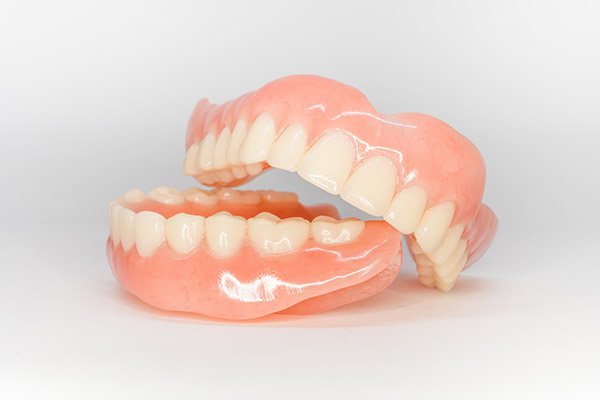 Dentures are the traditional tooth replacement solution. Also known as false teeth, dentures are known for being low maintenance and easily accessible. But it may be time for a replacement if the dentures are slipping out, shifting around, or causing pain. This article will help patients better understand the signs of ill-fitting dentures, potential solutions, and the risks associated with wearing dentures that do not fit properly.
Dentures are the traditional tooth replacement solution. Also known as false teeth, dentures are known for being low maintenance and easily accessible. But it may be time for a replacement if the dentures are slipping out, shifting around, or causing pain. This article will help patients better understand the signs of ill-fitting dentures, potential solutions, and the risks associated with wearing dentures that do not fit properly.
Signs dentures are too big
An adjustment period to wearing dentures makes it hard for some patients to discern whether their dentures fit correctly. If the dentures move around often, cause pain, or are easily damaged, chances are that the fit is not right. Here are some common signs that old or new dentures are too big:
- Swollen, red, and painful gums or mouth.
- Continued trouble eating, biting, and chewing.
- Accelerated jawbone loss.
- Gagging or nausea.
- Oral infections.
- Mouth sores.
How to fix ill-fitting dentures
There are multiple ways to fix ill-fitting dentures, such as relining or refitting. Additional implants may act as reinforcement when dental implants support the dentures. If dentures continue to cause problems for the patient, a more permanent tooth replacement option may be recommended.
Relining dentures, or denture adjustment
A dentist or prosthodontist can adjust ill-fitting dentures with a process known as relining. A soft reline adds depth to the denture with a liquid polymer, a fast process that the dentist performs in-office. There are also hard relines, which utilize a stronger denture resin or denture acrylic.
Replacing dentures
Patients may need more than an adjustment. This not only applies when new dentures fit poorly; dentures that were once a perfect fit may become too large as the jawbone changes over time. Therefore, replacing dentures every five years is recommended to ensure a proper fit.
What happens if you wear ill-fitting dentures?
We do not recommend to continue wearing dentures that are too big. The signs of poorly fitting dentures may progress. For example, difficulty eating and nausea may cause indigestion. In addition, if the dentures put too much pressure on the jaw, headaches and even ear pain may result. It may also irritate and inflame the gums, which can cause a sore and inflamed mouth (stomatitis).
Ill-fitting dentures may also cause the jawbone to lose volume, resulting in a sunken facial appearance. Supporting dentures with dental implants (or replacing them with implants completely) can help patients reverse facial collapse. Since implants are surgically implanted into the jawbone, they act like natural teeth and keep the bone engaged.
Having dentures checked and adjusted regularly can help prevent the issues above. Do not wait to consult a dentist or prosthodontist after noticing the signs of poorly fitting dentures. Doing so can also help the patient save money in the long run.
Get your dentures refitted, relined, or replaced
Traditional dentures remain an effective tooth replacement option for many patients. However, consult our team if you notice changes in the denture fit or have prolonged difficulty adjusting to a new set. We will get you set up with comfortable dentures or recommend alternative solutions.
Request an appointment or call Pampered Smiles at 404-891-9489 for an appointment in our Atlanta office.
Recent Posts
Those missing one or more teeth with healthy natural teeth can benefit from partial dentures. Not only do partial dentures help people chew food correctly, but they also restore the appearance of a smile. Choosing partial dentures allows a patient to regain comfort and confidence without complicated procedures.Partial dentures are removable oral appliances that fill…
Dentures are a great solution for people who have lost some or all of their teeth. They can restore one's ability to eat and speak properly and improve the overall appearance of your smile. However, you may have questions about the denture process, from the initial consultation to the final fitting. This blog article will…
Implant-supported dentures are ideal for many dental professionals and their patients. They offer many benefits over their alternatives, including a natural look and results lasting around 15 years or more. If you are considering restoring your smile with implant-supported dentures, we have outlined a few things to know before your appointment.Implant-supported dentures are not ideal…


